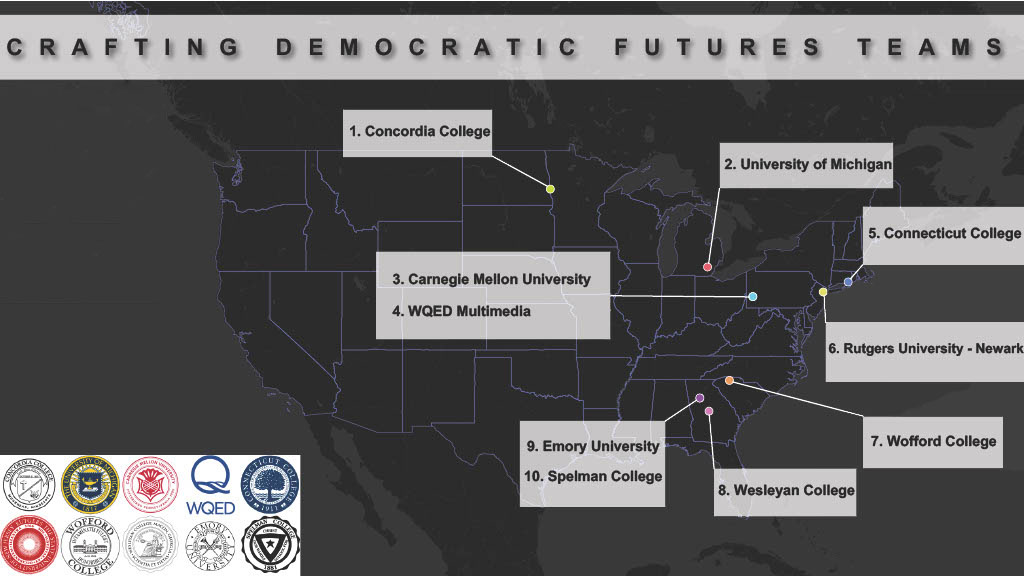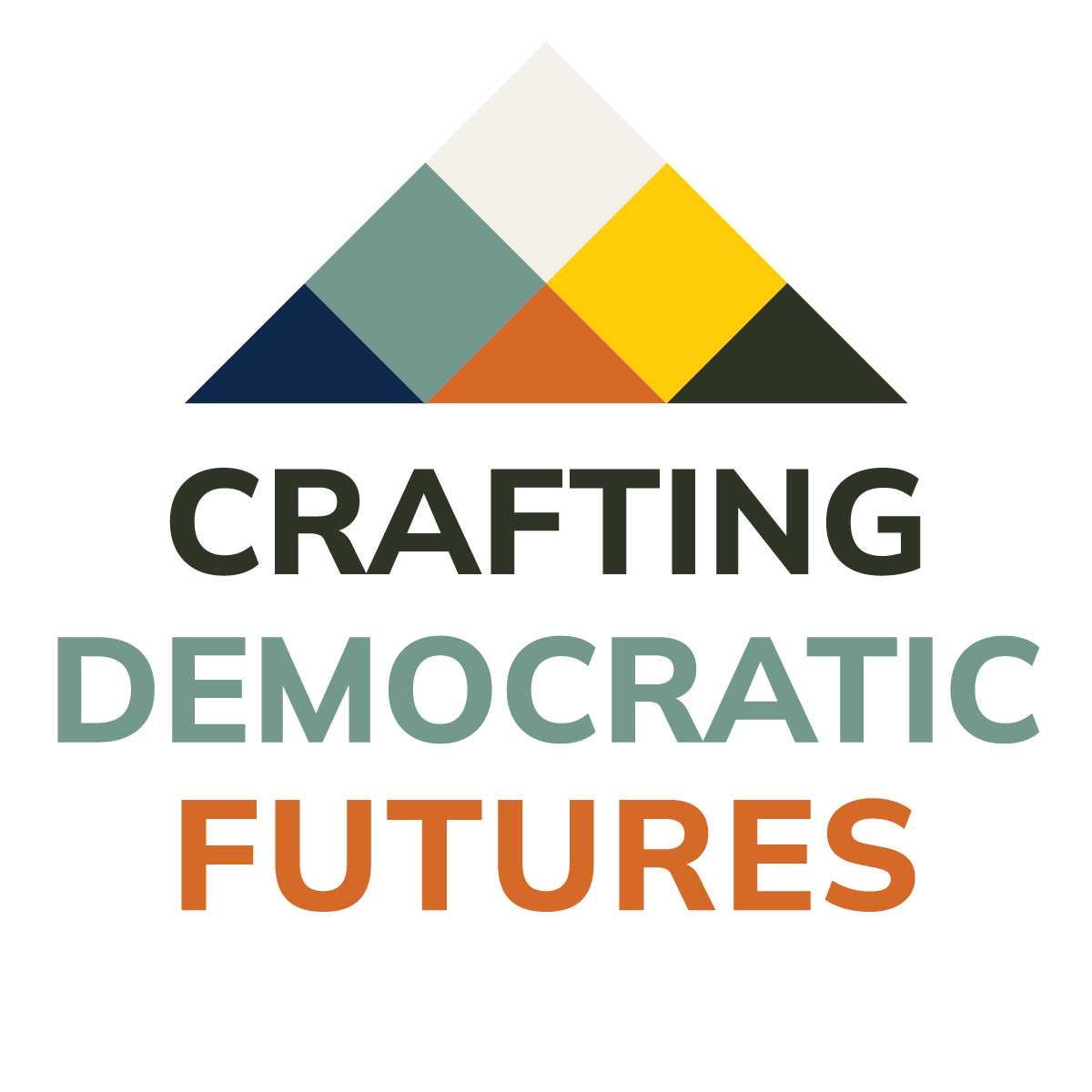
Housed within the Center for Social Solutions at the University of Michigan, the Crafting Democratic Futures (CDF) project is a national network of humanities scholars located at nine geographically and organizationally diverse colleges and universities to develop research-informed, community-based reparations plans for each location. The project teams at each institution will work with community fellows and community-based organizations to research local histories, identify issues in need of repair, and produce tangible suggestions for community-led racial reparations solutions.
CDF Teams span across the Central North region of the country, across the Midwest, and down the Eastern seaboard. Specifically, CDF teams comprise partners from Carnegie Mellon, Emory, and Rutgers (Newark) universities; Concordia (Moorhead, MN), Connecticut, Spelman, Wesleyan (Macon, GA), and Wofford (Spartanburg, SC) colleges; and the University of Michigan campuses. Pittsburgh’s public media flagship, WQED [Multimedia], is also a key partner, charged with developing a public documentary about reparations and race in the US.
Our partners will produce a range of tangible suggestions for local reparations solutions, including: engaging in research and restorative action for Indigenous people, focused on forced Indian Boarding Schools and language learning as a historical trauma due a form of reparations; exploring racial disparities in education, health, housing, criminal justice, entrepreneurship, wealth, and environmental justice; conducting narrative research and co-creation of local histories around redlining and public monuments; probing histories of school and residential segregation; addressing legal land redress; and amplifying descendant voices. Lastly, with our public broadcast media partner, we will produce a documentary designed to hold a national conversation around reparations and capture the efforts and outcomes of this nationwide project.
The CDF project poses an exciting opportunity to bring together grassroots organizing and humanities scholarship in a collaborative endeavor that can be leveraged to enact change at the local level and advance discussions of reparations at the national level. Ultimately, CDF explores how reparations might involve components such as acknowledgment, accountability, redress, and closure; all in the spirit of repair and reconciliation.
Media Contact & Resources
For all press inquiries regarding the Crafting Democratic Futures project, please email [email protected].
Sponsored by


